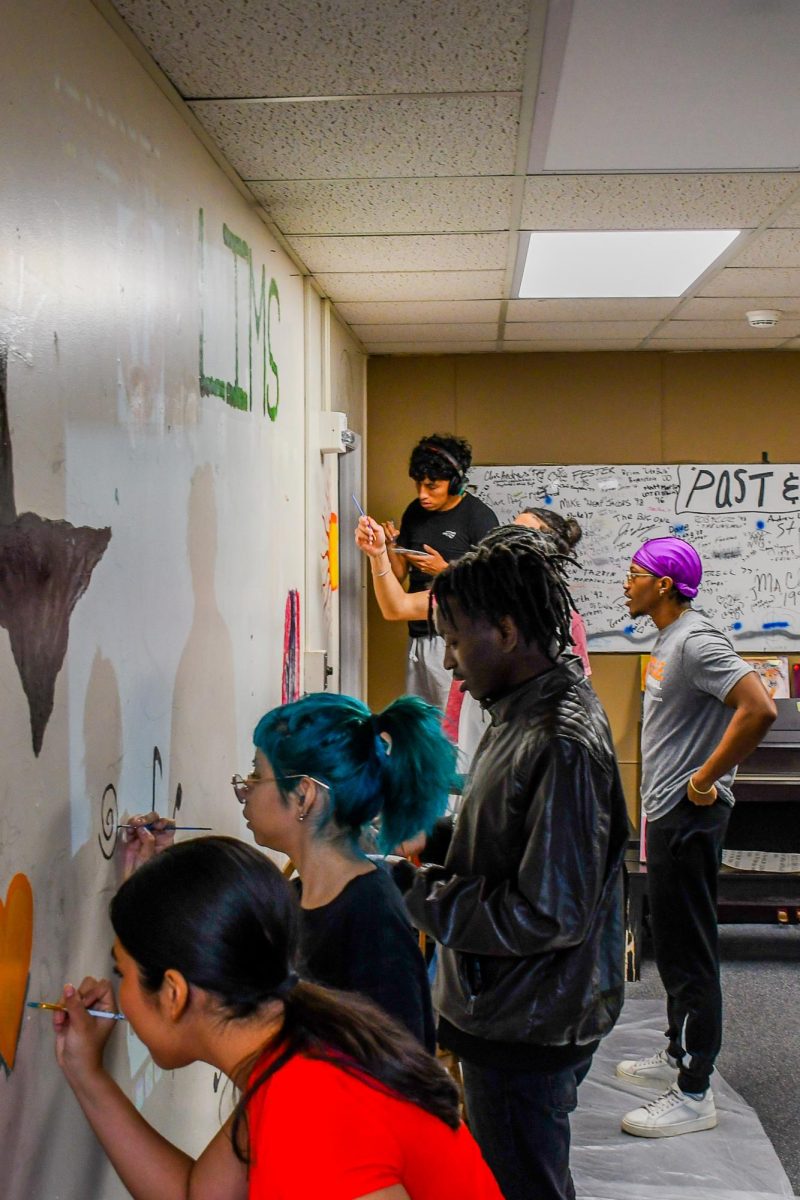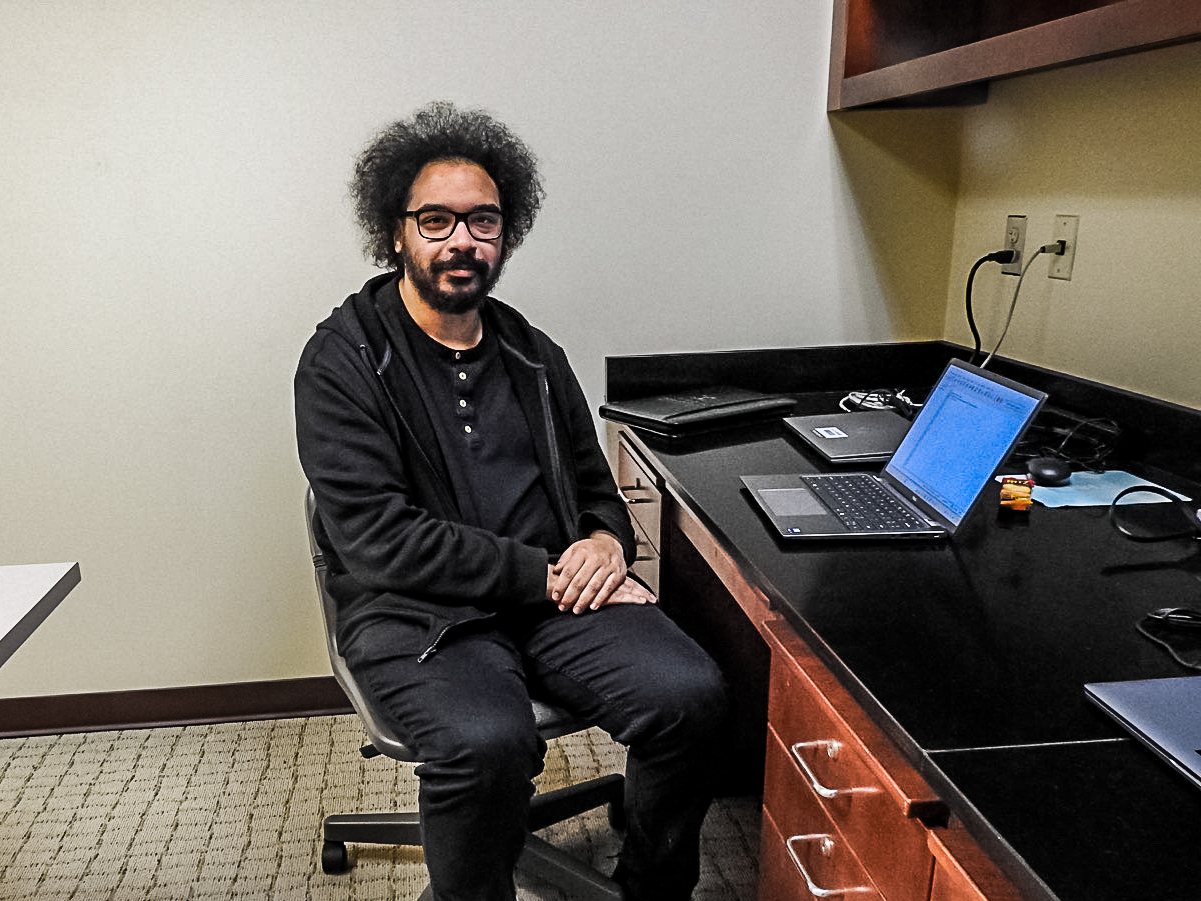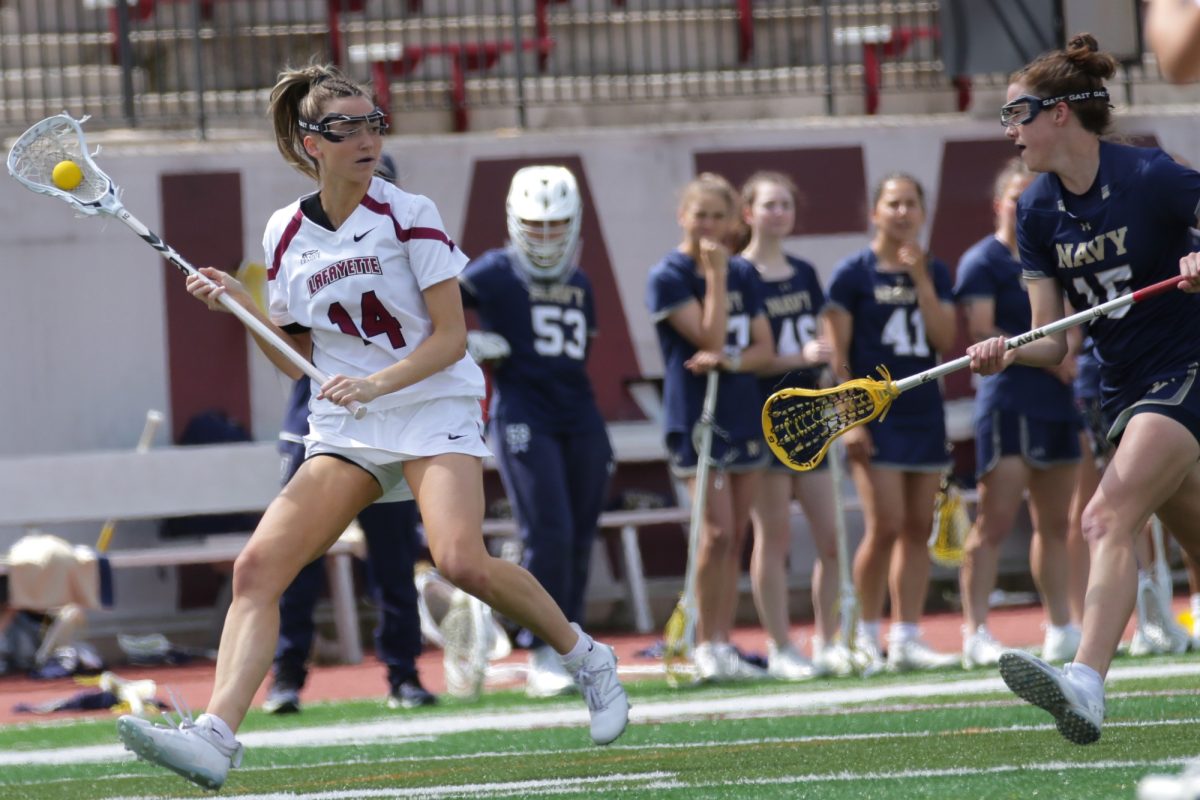Four of Student Government’s executive officers were elected one year ago, unopposed and with ambitious agendas. Two more officers defeated opponents months later in a special election. As the current Student Government term nears its end, those campaign promises hang in varying states of completion, and the organization has yet to field candidates for an election despite ballots having already been distributed by this time last year.
The Lafayette reviewed the promises made by the incumbents, several of whom are expected to run again, and evaluated the extent to which they were achieved.
President Thania Hernandez ‘25
Hernandez ran unopposed for president on a platform of building community within Student Government, increasing transparency and expanding accessibility services.
However, Student Government has seen 11 of its members quit or be expelled during Hernandez’s presidency, compared to five in the prior administration.
“I think one of the biggest challenges was having so many vacancies constantly,” Hernandez said in a September interview. “But that was a challenge that was presented in the moment, and then this summer, we were able to come back full force.”
Two representatives have resigned since the summer, leaving three vacancies.
Under Hernandez, Student Government’s transparency measures have seen little change. Club budgets, for instance, are still deliberated behind closed doors, preventing students from observing the process by which their club budgets are decided. On at least one occasion, the Student Government executive board advised representatives to not speak with The Lafayette.
Four times this term, Student Government violated a transparency measure in its bylaws by posting its meeting agenda late. The measure stipulates that the agenda must be posted publicly at least 12 hours before a meeting or votes taken during the meeting will be rendered null. This issue was remedied only once.
On one occasion, Hernandez called a “special meeting” to circumvent the bylaw, though such a meeting is still subject to the rule. As a result, Student Government has illegitimately approved meeting minutes three times this term, including twice in September.
Hernandez said during her campaign that she would explore new ways of getting feedback from students face-to-face. Student Government held tabling events and, according to Hernandez, once held a forum with diversity groups. The organization’s primary mode of soliciting feedback remains its Instagram account, which typically receives low engagement.
Hernandez campaigned on connecting with the student body through increased office hours or public committee reports. Student Government executive officers claim office hours were expanded, but they are not advertised.
Student Government committee reports have been posted publicly with little consistency and months late, if at all. Hernandez falsely claimed in an email that they were made public on a monthly basis.
Hernandez pledged to advocate for accessibility issues to the administration and Board of Trustees and emphasized the creation of a specific system through which students could report broken handicap door buttons. In the spring semester, Student Government established an accessibility ad hoc committee to investigate opportunities for integrating accessibility on campus.
When asked what action she had taken toward establishing a handicap button report system, Hernandez responded, “Conversations around accessibility, and specifically the use of the buttons are an element of time and progress.”
Hernandez said in the September interview that she hopes her accessibility initiatives are completed by the end of the academic year, which is after her term expires.
Vice President Yuko Tanaka ‘26
Tanaka ran unopposed for vice president on a platform of increasing Student Government’s transparency, prioritizing sustainability-related issues and improving student’s daily lives through actions like streamlining the dean’s excuse system. Tanaka has not fulfilled many of these promises.
Student Government’s transparency measures have changed little this term. The organization has held four illegitimate meetings after violating transparency rules, with the issue remedied once.
Tanaka upheld — with mixed results — her promise to announce Student Government vacancies.
Student Government has not posted publicly about any resignations since February. In the lone instance Student Government did acknowledge resignations on its social media, it anonymized the representatives who resigned, including the elected parliamentarian, Chris Kirch ‘26.
Student Government rules state the organization must publicly solicit applications to fill vacancies within one week of the vacancy arising. After four resignations this term, the announcements came late or not at all.
Membership recruitment is one of the six jobs of the vice president, as outlined in Student Government’s bylaws.
Tanaka also pledged to hold open office hours to hear student concerns and keep Student Government accountable. According to a September email from Tanaka, Student Government began hosting such office hours last semester. However, these office hours are not advertised publicly.
Regarding sustainability, Tanaka pledged to install new water bottle filling stations.
According to the Office of Sustainability’s outreach and engagement manager, Samantha Smith, Student Government’s sustainability committee had “a focus on the water bottle refill stations,” but she was unsure whether any new stations had been added beyond buildings constructed this year.
Tanaka did not respond to a question about this subject.
Smith also confirmed that the sustainability committee collaborated on several projects with the Office of Sustainability.
Tanaka’s platform also hinged on reforming the dean’s excuse system. The system remains the same as it was after it was overhauled last year.
Tanaka did not respond to a question about this subject.
Treasurer Christo Maheras ‘26
Maheras ran for treasurer unopposed on a platform of reining in Student Government club spending and making club budgets a more collaborative process.
Under Maheras, Student Government has tightened its purse strings, allocating $360,000 out of an available $400,000 in the spring and capping fall budget allocations at $330,000.
At an October candidate forum hosted by The Lafayette, Maheras said he would add one more office hour per week to “gain the trust and transparency of the students.”
Other than during the weeks following club budget approvals, when office hours occurred twice weekly, budget office hours have remained once a week for one hour, the same frequency as before Maheras took office.
“Despite our fervent advertisements of these office hours sessions, attendance was low/none at almost every one of them,” Maheras wrote in an email.
Maheras added that the budget office hours were advertised at a separate set of Student Government office hours, which are themselves not advertised. The budget office hours were also promoted in two Instagram posts, one in February and one in September, and can be found in Student Government’s Instagram bio and on its website.
Maheras also campaigned on a promise to get club leaders working on their budgets “more involved in the process of watching us do it, as well as having input on it,” including through workshops that never happened.
“I will establish that relationship of, ‘I’m your touchpoint, please come to me if you have questions. I’d love to work with you through putting a budget request in and being your advocate,’” Maheras said at the forum.
Katie Simpson ‘26, the president of service fraternity Alpha Phi Omega, said she did not feel supported by the Maheras-led budget committee, which decides club budgets. Leaders of several other clubs agreed.
“They’re helpful in trying to come up with solutions,” Simpson said, describing how the committee suggested ways Alpha Phi Omega could raise the funds it was not allocated by Student Government. “I understand that a lot of clubs and organizations need money and they need to split that as evenly as possible. But it’s a little disappointing.”
“This back and forth was something I wanted to become a regular occurrence between clubs and my committee,” Maheras wrote of club budget discussions. “I feel confident in saying that every club that came in left feeling as though they had more input on their requests.”
Simpson said the committee’s suggestions, such as asking organizations not funded by Student Government for money, have not been fruitful.
Maheras began soliciting feedback on the budget process in October through the census ad hoc committee, which he co-created.
Communications Officer Elle Lansing ‘26
Lansing ran for communications officer unopposed on a platform of completing the position’s required tasks better than her predecessor and prioritizing student engagement. Her record has been uneven.
At the candidate forum, Lansing emphasized that she would communicate Student Government’s committee work to students through “committee updates, committee reports and possibly spotlighting what we do in those specific groups.”
Student Government posted committee reports from the month of February on Instagram in April, with no report from the month of January. In May, Student Government posted a March committee report for its ad hoc committees, with no mention of its seven main committees.
In late October, Student Government posted a graphic about committee activities in September. Lansing posted a link to the full September committee report in the bio of the Instagram account on Tuesday after being asked about it by The Lafayette.
No other committee reports have been posted.
“It could be that by the time we got all of them from our committees, it was too late,” Lansing said.
In her role, Lansing is in charge of keeping meeting minutes and publicly posting the agenda, a transparency measure adopted by Student Government last year. She has routinely failed to do both in a timely manner.
On four occasions this term, Student Government violated the measure by posting its meeting agenda late. The measure stipulates that the agenda must be posted publicly at least 12 hours before a meeting for the meeting to occur.
The issue was remedied only once. As a result, Student Government has illegitimately approved meeting minutes three times this term, including twice in September.
“Yeah, it was late a few times,” Lansing said. “But I’ve gotten better at it.”
The most recent minutes on Student Government’s website were from Sept. 19, until The Lafayette approached Lansing about the discrepancy on Tuesday.
Student Government must also email its meeting minutes to several groups on campus, including faculty committee chairs, Greek life presidents, head resident advisors and The Lafayette. But the organization’s email list is outdated — only two of the college’s eight head residents receive the minutes, along with at least two who graduated in May, and at least four of the six faculty committee chairs do not receive the minutes. All but one Greek life president receive the minutes.
According to Lansing, she inherited the email list from her predecessor and has adjusted it several times. On Tuesday, Lansing began amending the email list mid-interview after being asked about it by The Lafayette.
“Tell me who’s outdated and I’ll fix it,” Lansing said.
Inclusivity Officer Sasha Carter ‘27
Carter ran for inclusivity officer in a March special election on three main promises: to create an anonymous bias report system administered by Student Government, reactivate Student Government’s Equity & Inclusion Instagram account and expand Pard Pantry’s offerings. Carter only accomplished the third.
“There’s so much to be done,” Carter said. “I couldn’t get everything done, but I still am proud of what I’ve done in the last semester and a half.”
Carter’s proposed anonymous bias report system, which would have allowed students to report bias incidents to Student Government, never came to fruition. Though Carter said she still hopes to have discussions about such a system, she determined that focusing on resources was of more priority to the student body.
The Equity & Inclusion Instagram account, which Carter said during her campaign would be used to highlight events happening on campus, is still dormant.
“Upon being elected, I talked to our board and we decided that we should utilize the followers that we have with the Student Government Instagram and keep it in one solidified place,” Carter said.
Carter maintained that she has met the goals of this account by promoting intercultural events and resources on Student Government’s main Instagram account. There have been three posts on Student Government’s main account regarding the work of Equity & Inclusion since Carter was sworn in. All three advertise Pard Pantry.
“I feel like I get criticized sometimes that that’s the only thing I’ve done as diversity officer,” said Carter of her work with Pard Pantry. “But I think that as a whole, me and all the students in Student Government have been contributing to make it a more diverse, equitable, inclusive community.”
During Carter’s tenure, Pard Pantry has seen substantial attention with expanded operating hours, paid summer staffers and more available items.
Carter said she communicates with groups like the International Student Association to determine what items are most needed. According to Carter, Pard Pantry now offers items like dairy-free milk, lentils and miso paste as a result of these discussions.
“It’s not my only priority,” Carter said. “I know that there’s so much more to diversity, equity and inclusion than a food pantry, and I’m very much aware of that.”
Parliamentarian Ava Gallia ‘26
Gallia ran for parliamentarian in a March special election on a platform of increasing Student Government’s transparency and upholding Student Government’s rules. Despite these promises, Student Government has violated its own transparency rules.
Twice during Gallia’s tenure, Student Government did not post its meeting agenda 12 hours in advance, a requirement for meetings to occur. On both occasions, Gallia allowed the illegitimate meeting to proceed and allowed Student Government to approve the actions taken during these meetings.
“Our goal is to always put the student body first, and in cases where the agenda was only posted a couple of hours late, we choose not to delay addressing student needs and concerns by waiting an entire extra week,” she wrote in an email.
Student Government is constitutionally obligated to hold meetings once per month over the summer, but it did not. Gallia attributed the lack of an August meeting to the “personal hardships” of “a few” members and the introduction of a new advisor.
At the March special election candidate forum, Gallia pledged to educate members of Student Government “as they have questions” and when she saw “things happening that perhaps don’t abide by the constitution.”
The Lafayette has attended all but one Student Government meeting during Gallia’s tenure and has not observed Gallia assert herself when Student Government violates its own rules on any occasion. She stated that this was simply her leadership style.
“Often, questions come up that I look into and discuss outside of the meeting, or discretely with the appropriate member during a meeting,” Gallia wrote.
Gallia also pledged to “address matters of constitutionality brought forward by the newspaper.” Despite routine coverage of violations in The Lafayette, the issues have persisted.
“From my evaluation, the parliamentary procedures of the Student Government have been largely observed,” Gallia wrote. “Any instances of procedural violations have been addressed or carefully evaluated as beneficial to the student body.”
During her campaign, Gallia said she would hold weekly parliamentarian office hours where she would be available to answer questions about Student Government. Such office hours never came to fruition.
According to Gallia, Student Government does hold general office hours once a week, but they are staffed by a rotation of members, and members of the executive board are not always present. The office hours are not advertised publicly.
Madeline Convy ’27 and Grace Hubler ’27 contributed reporting.
Disclaimer: Elisabeth Seidel ’26 is an employee in the Office of Sustainability.





































































































